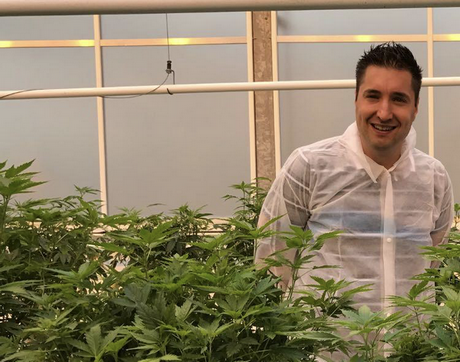The first phase of the nascent cannabis industry was characterized by the so-called ‘Green Rush’. The opening of a whole new sector with a forecasted huge potential attracted many people to jump in without any second thought. Yet, as the saying goes, ‘the risk was calculated, but oh boy am I bad at math’. Over the last year, many cannabis giants experienced a sharp decline of their stock value. “Inevitably, every cannabis initiative did not automatically turn into gold,” Pim Molenaars with Cannabis Cultivators points out.
The importance of planning ahead
Cannabis Cultivators is a consulting company with customers in European countries such as Portugal, the UK, Spain, Italy, Denmark and Greece, as well as in Canada, Australia, and New Zealand. “For a while, every initiative could count on a strong influx of money from investors and/or a quick buy out from one of the Canadian corporate companies. The actual sales of products were not clearly thought of and were not even the direct scope of business. It did not happen yet. One of the main factors here was the lack of a solid business case and planning. Companies rushed into the business since they saw a pot of gold, but did not plan a path to get to the treasure. They started running with insufficient sense of direction and the required expertise to come to a solid business plan. Fear of missing out and the strong desire to be a ‘first mover’ made them rush. But companies that will be successful have a strong business planning.”

Thus, Pim suggests to go from specific to general, instead of the other way around. “The solution lies in solid business planning with a focus on the final product and the design of the company around it,” he says. “If there is a proper business planning, you can design your facility around it and horticultural suppliers can offer you the products that meet the needs. We see that aside from this, it is of the utmost importance not only to have the hardware in place, but also the software. Luckily, we see that companies now focus on bringing on board people with the right skillset and some who are experts in management. Bluntly put, you need a combination of the right business case, suppliers, and people. Having the required knowledge and expertise to grow high-quality cannabis is absolutely paramount in such a competitive market.”
And this is exactly where Cannabis Cultivators comes into play. “Cultivators supports cannabis initiatives during the first start of the business planning up to daily operations and management,” Pim says. “We strongly cooperate with horticultural suppliers since these companies see the need to bring in specific cannabis expertise to their customers. Cultivators and its partners support the full project to ensure safe and sound ingredients and business.”
Takeaways from the Corona times
This also during Covid-19 period. “The positive thing about the cannabis industry during this Covid-19 crisis is that companies carry out most of their operations in-house and they do not have countless suppliers such as the car industry, for instance,” Pim points out. “However, we have seen that there have been challenges to bring in knowledge, expertise, and people since travel has been difficult. Cultivators did everything and worked hard to bridge this gap by advising remotely. But since we work with living plants, this was a challenge as well. Still, we managed to do it. And frankly, the industry adapted itself and learned to improve based on remote advice. At the same time, walking around the facility provides the required full picture. As travel limitations are being lifted, we are receiving an increasing number of invitations, which is a sign of the underlying desire and need for face to face contact.”
At the same time, it is exactly when limits are put into place that people find the most innovative and efficient way to make their way through to their goal, and the solutions to the current challenges could potentially be very beneficial to the industry as a whole as soon as this crisis is over. “Over this last period, cannabis companies have had more time and had to properly think out their strategic direction and next steps,” Pim points out. “Questions that were below the surface and/or insufficiently addressed are now on the agenda of growers and their suppliers, such as: what is my long-term business strategy? How do my products and services fit in the cannabis industry in terms of quality demands and standards? What are the legal requirements to be in the cannabis industry for growers and suppliers?
These are the crucial questions to which the answers ensure safe and sound products and a solid long-term business case. We believe that this tough period of reconsiderations might actually be beneficial for the cannabis industry in the long term.”
For more information:
Cannabis Cultivators
info@cultivators.nl
cultivators.nl
